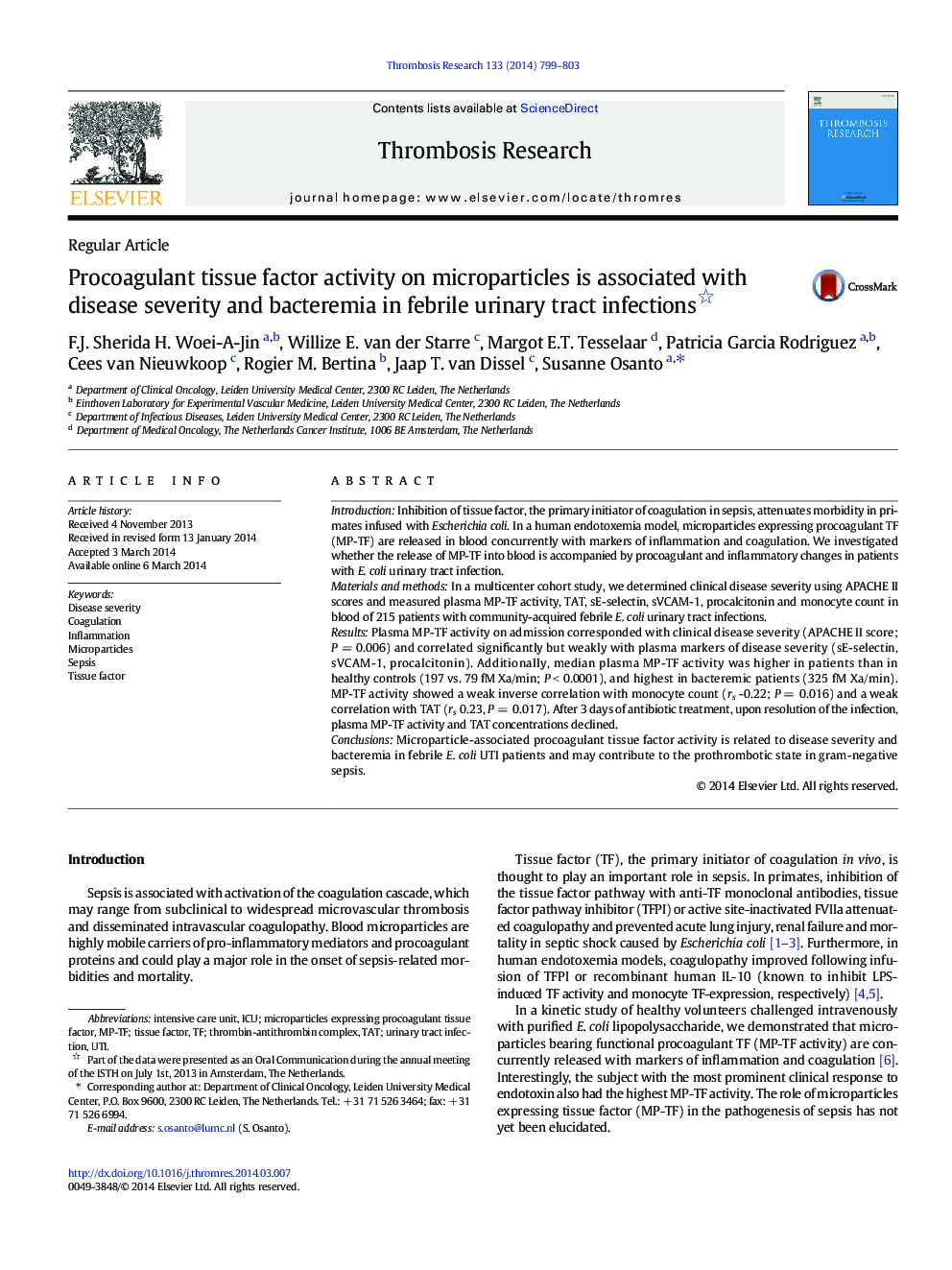| Article ID | Journal | Published Year | Pages | File Type |
|---|---|---|---|---|
| 6001216 | Thrombosis Research | 2014 | 5 Pages |
IntroductionInhibition of tissue factor, the primary initiator of coagulation in sepsis, attenuates morbidity in primates infused with Escherichia coli. In a human endotoxemia model, microparticles expressing procoagulant TF (MP-TF) are released in blood concurrently with markers of inflammation and coagulation. We investigated whether the release of MP-TF into blood is accompanied by procoagulant and inflammatory changes in patients with E. coli urinary tract infection.Materials and methodsIn a multicenter cohort study, we determined clinical disease severity using APACHE II scores and measured plasma MP-TF activity, TAT, sE-selectin, sVCAM-1, procalcitonin and monocyte count in blood of 215 patients with community-acquired febrile E. coli urinary tract infections.ResultsPlasma MP-TF activity on admission corresponded with clinical disease severity (APACHE II score; PÂ =Â 0.006) and correlated significantly but weakly with plasma markers of disease severity (sE-selectin, sVCAM-1, procalcitonin). Additionally, median plasma MP-TF activity was higher in patients than in healthy controls (197 vs. 79 fM Xa/min; PÂ <Â 0.0001), and highest in bacteremic patients (325 fM Xa/min). MP-TF activity showed a weak inverse correlation with monocyte count (rs -0.22; PÂ =Â 0.016) and a weak correlation with TAT (rs 0.23, PÂ =Â 0.017). After 3Â days of antibiotic treatment, upon resolution of the infection, plasma MP-TF activity and TAT concentrations declined.ConclusionsMicroparticle-associated procoagulant tissue factor activity is related to disease severity and bacteremia in febrile E. coli UTI patients and may contribute to the prothrombotic state in gram-negative sepsis.
